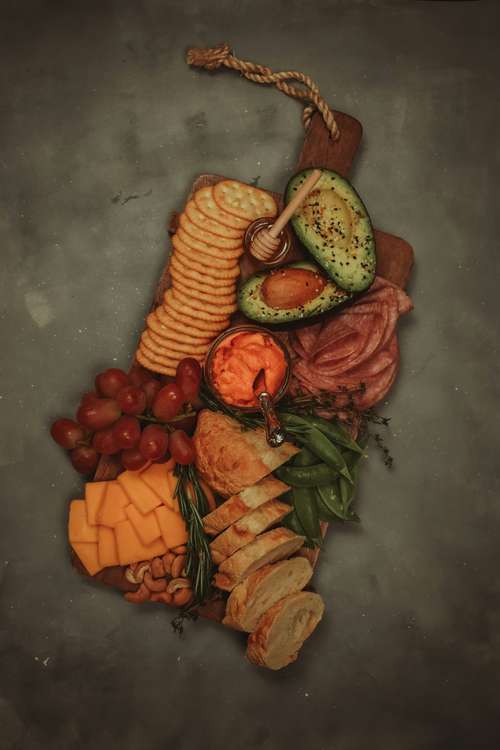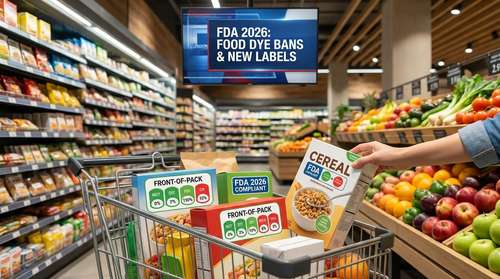If you’ve ever reached for that convenient snack or microwave meal, you might have wondered about the long-term effects on your health. Lately, there’s been growing concern as multiple studies point to a link between ultra-processed foods and a range of major health conditions. It seems our everyday choices in the kitchen could be influencing our wellbeing in more ways than we imagined.
Ultra-processed foods are everywhere, from the packaged meals in the freezer aisle to the ready-to-eat snacks on the go. These foods, loaded with additives and refined ingredients, have become a staple for many in today’s fast-paced world. But, at what cost? The research suggests that the more you consume these products, the higher your risk for 12 major health conditions, including obesity, cardiovascular diseases, and even certain types of cancer.
The Rise of Ultra-Processed Foods
In this section, we explore the rapid increase in ultra-processed foods in our diets and what that means for our overall health. The convenience factor in our hectic lives has made these foods a common choice, but the hidden dangers are something we can’t ignore.
Many people equate processed food with a quick, tasty solution for mealtime dilemmas. However, ultra-processed foods differ from minimally processed foods in that they often contain multiple additives and chemicals. They are typically high in sugar, salt, and unhealthy fats, which contribute to chronic health issues. You might think, 'Sure, it’s convenient now, but is it worth the long-term health impact?'
Even though these foods are designed to taste appealing, eating them frequently can cause more harm than you might suspect. With accumulating research in health research clearly linking these products to negative health consequences, it’s becoming transparent that they pose a serious public health concern. Small changes in dietary habits might be the key to disease prevention and overall better nutrition.
The Health Impact: 12 Major Conditions
This section dives into the specific health conditions that are associated with a diet rich in ultra-processed foods. It’s shocking to realize how one food category could be linked to such a broad range of adverse health outcomes.
For starters, obesity is one of the most discussed conditions. Ultra-processed foods are high in calories and low in nutritional value, a combination that creates a perfect storm for weight gain. This imbalance in diet and health prompts the body to store excess energy as fat, leading to obesity and related complications like metabolic syndrome.
Next up, we have cardiovascular diseases. High salt content and unhealthy fats in junk food can elevate blood pressure and cholesterol levels, increasing the risk of heart attacks and strokes. The link between poor cardiovascular health and ultra-processed foods is well-documented and should be taken seriously by anyone aiming to maintain a healthy lifestyle.
It doesn’t stop there. There is also mounting evidence pointing to a higher risk of type 2 diabetes, various forms of cancer, and even mental health issues. The processed food risks extend to liver disease, kidney problems, and even some autoimmune disorders. Think about it: each bite of that ready-made meal could be nudging you closer toward one of these chronic diseases.
Understanding the Underlying Causes
Let’s break down how exactly these ultra-processed foods are triggering so many health issues. This section looks at the components in these foods that are contributing to a plethora of health problems, and why even a small quantity might have a significant health impact.
Many ultra-processed foods contain artificial food additives. These additives, including preservatives, flavor enhancers, and colorants, are added to ensure the food’s shelf-life and to make them more appealing. However, over time these chemicals can disrupt normal body functions, leading to an imbalance in our metabolism and immune system. When your body is constantly battling these foreign substances, it’s like an engine that’s been loaded with low-quality fuel. The result is over time, the rapid wear and tear manifest as serious chronic diseases.
Can you imagine that your everyday meal could turn into a ticking time bomb? That’s because these foods don’t contain the natural vitamins and minerals your body needs, leaving you depleted. Recursive studies reveal that unhealthy eating patterns contribute to long-term health risks, and changing these dietary habits is vital. The overwhelming evidence linking ultra-processed foods with health conditions should serve as a wake-up call.
Diet and Health: What You Can Do
In this section, we discuss practical steps you can take to reduce the risks associated with ultra-processed foods. Picking healthier options isn’t just about avoiding junk food; it’s about making informed decisions for your long-term health.
You can begin by gradually replacing ultra-processed items with fresh fruits, vegetables, and whole grains. Instead of grabbing a packaged snack, why not opt for a quick piece of fruit or a handful of nuts? This simple switch can make a big difference in dietary health, and over time, your body will thank you. Moderation and balance are the keys. If you occasionally eat ultra-processed foods, ensure they don’t become the cornerstone of your diet.
Furthermore, becoming more mindful of food additives and reading nutritional labels can empower you to make healthier choices. If you’re curious about what goes into your meals, take a moment to learn about the ingredients. This may seem like a small change, but with ongoing research linking these foods to disease prevention challenges and processed food risks, even small adjustments can pay big dividends in improving your health impact.
Our close friends in the nutrition world, including renowned dietitians, suggest that investing time in cooking meals at home with fresh ingredients is one of the best ways to curb the consumption of harmful food additives. You’ll find that when you control what goes into your meals, you also control the potential risk factors associated with chronic diseases.
Policy Actions and Public Health Awareness
This final section looks at the bigger picture: the need for policy changes and increased public health awareness around ultra-processed foods. Governments and public health entities are now being urged to implement regulations that limit the usage of harmful additives in food manufacturing.
It's not an exaggeration to say that the consumption of ultra-processed foods represents a significant public health challenge. With chronic diseases on the rise, many experts have emphasized the importance of educating the public on the health consequences of these dietary habits. Conversations about public health are gaining momentum, and initiatives to label harmful ingredients are beginning to emerge.
While individuals can make a difference by modifying their own dietary choices, systemic changes are crucial. Policy actions could include stricter regulation around food additives and enhanced food labeling guidelines to better inform consumers. The combined power of informed citizens and proactive policies could help steer us away from the processed food risks we face today.
In the end, our dietary habits are a reflection of the society we live in. By advocating for more transparent food practices and learning from the wealth of nutritional research available, we can pave the way toward a healthier future.
Understanding that every choice you make counts is key. As we navigate through our busy lives, let’s take a moment to think about the potential cost of convenience. Our health is our most valuable asset, and learning to choose wisely may just be the best investment we ever make.




